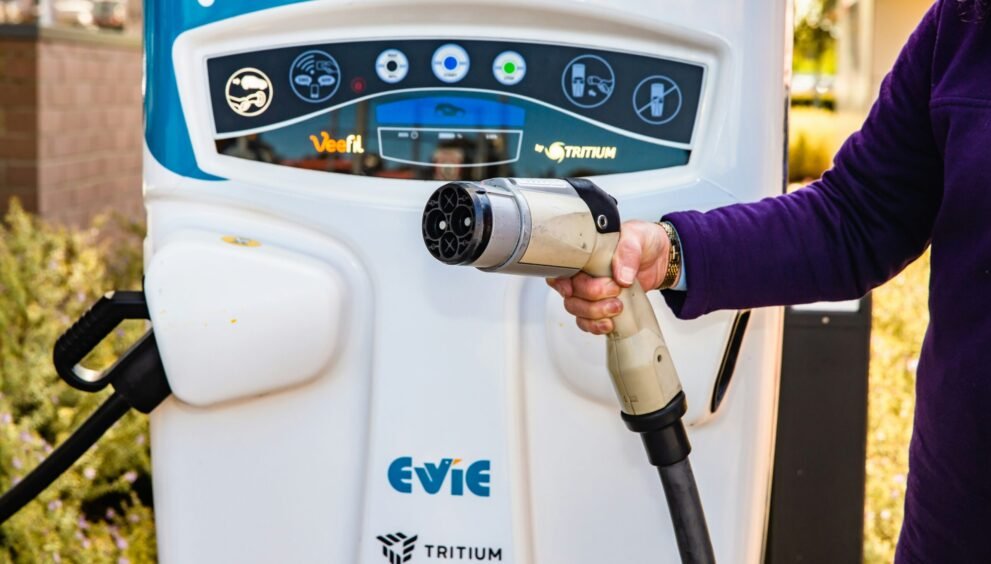Roadside Electric Car Charging Cost – What You Need to Know

Roadside Electric Car Charging Cost, As an electric vehicle (EV) owner, understanding your charging options is crucial for a seamless driving experience. Knowing how to charge your vehicle on the go can significantly impact your overall EV ownership experience.

You need to be aware of the expenses associated with electric car charging when you’re not at home. This knowledge will help you plan your trips and budget accordingly, ensuring that you’re not caught off guard by unexpected expenses.
Key Takeaways
- Understanding your EV charging options is key to a smooth driving experience.
- Knowing the expenses associated with on-the-go charging can help you plan your trips.
- Being aware of your charging options can significantly impact your overall EV ownership experience.
- Planning ahead can help you avoid unexpected expenses.
- Maximizing value when charging on the go is crucial for EV owners.
Understanding Roadside Electric Car Charging Options
Electric vehicle owners know that charging on the go is a top priority, and there are several roadside options to consider. As you travel, you’ll encounter various public charging stations that can help keep your vehicle powered up.
Types of Public Charging Stations
Public charging stations come in different types, including Level 2 and DC Fast Charging stations. Level 2 chargers use a 240-volt charging unit and can take several hours to fully charge your vehicle. In contrast, DC Fast Chargers can charge your EV to 80% in under 30 minutes. Understanding these options is crucial for planning your route and ensuring you can charge your vehicle when needed.
Finding Charging Stations While Traveling
Finding charging stations while on the move is easier than ever, thanks to online resources and apps designed to make EV ownership more convenient. You can use platforms like PlugShare or ChargePoint to locate nearby charging stations. These services often provide real-time information on station availability and charging costs, helping you plan your stops more efficiently.
Charging Speeds and Compatibility
Charging speeds vary significantly between different types of charging stations. When using a public charging station, it’s essential to ensure that it’s compatible with your EV’s charger. Most modern electric vehicles support multiple charging standards, but checking compatibility beforehand can save you time and avoid any inconvenience. Be aware of the affordable EV charging rates and roadside charging station fees to manage your electric vehicle charger costs effectively.
Roadside Electric Car Charging Cost Breakdown
Understanding the cost of charging your electric car on the road is crucial for EV owners. The expense can vary significantly based on several factors, including the charging network, your location, and the type of charger used.

Pay-as-You-Go vs. Subscription Models
When it comes to roadside electric car charging, you have two primary options: pay-as-you-go and subscription models. Pay-as-you-go models offer flexibility, allowing you to charge your vehicle without a long-term commitment. In contrast, subscription models can provide cost savings for frequent users, with some networks offering discounted rates or unlimited charging plans.
For instance, some charging networks offer monthly subscriptions that can reduce your cost of charging electric cars if you charge frequently. However, if you only charge occasionally, a pay-as-you-go model might be more economical.
Comparing Major Charging Network Prices
Different charging networks have varying price structures. For example, Electrify America, EVgo, and ChargePoint are among the major players, each with their own pricing models. To give you a better idea, here’s a comparison of their average prices:

- Electrify America: $0.31 per kWh
- EVgo: $0.29 per kWh
- ChargePoint: varies by station, but typically around $0.25-$0.35 per kWh
These prices are subject to change, and it’s essential to check the current rates when you charge. The average electric car charging prices can also vary depending on the region and the type of charger used.
Regional Price Variations Across the US
Charging costs can differ significantly across various regions in the US. Urban areas tend to have more charging options, which can lead to competitive pricing. In contrast, rural areas might have fewer charging stations, potentially resulting in higher costs due to less competition.
For example, charging in California might be more expensive than in other states due to higher demand and operational costs. Understanding these regional variations can help you plan your trips and charging stops more effectively.
Hidden Fees to Watch For
When using roadside electric car charging stations, be aware of potential hidden fees. Some charging networks may charge additional fees for things like idle time or membership sign-up. Always review the pricing details before charging to avoid unexpected costs.
Conclusion: Maximizing Value When Charging on the Go
To get the most out of roadside electric car charging, you need to understand your options and be mindful of the costs. When you compare EV charging costs across different networks, you can identify the best rates for roadside charging and make informed decisions about your charging habits.
By choosing the right charging network and pricing model, you can save money and time when charging your EV on the go. For instance, some networks offer pay-as-you-go plans, while others provide subscription-based models that can help reduce your overall charging costs.
To enjoy the convenience of electric vehicle ownership while minimizing costs, it’s crucial to stay informed about charging options and prices. By doing so, you can optimize your charging routine and make the most of your EV’s capabilities.
FAQ
How much does roadside electric car charging typically cost?
The cost of roadside electric car charging varies depending on the charging network, location, and type of charger used. On average, you can expect to pay between $0.25 to $0.50 per kilowatt-hour (kWh) for Level 2 charging and up to $0.60 per kWh for DC Fast Charging.
What are the average electric car charging prices for major charging networks?
Major charging networks like Electrify America, EVgo, and ChargePoint have different pricing models, with costs ranging from $0.25 to $0.50 per kWh. Some networks also offer subscription-based services or flat fees per charging session.
Are there any hidden fees associated with roadside electric car charging?
Yes, some charging networks may charge additional fees, such as idle fees, parking fees, or membership fees. Be sure to review the pricing terms and conditions before using a charging station to avoid unexpected charges.
How can I compare EV charging costs across different charging networks?
You can compare EV charging costs by researching the pricing models and rates offered by different charging networks. Websites and apps like PlugShare or ChargeHub can help you find and compare charging stations and their associated costs.
What are the best rates for roadside charging, and how can I find them?
The best rates for roadside charging vary depending on your location and the charging network. You can find the best rates by using online resources, such as charging network websites or mobile apps, to compare prices and identify the most cost-effective options.
How do regional price variations across the US impact my electric car charging expenses?
Regional price variations can significantly impact your electric car charging expenses. Charging costs can be higher in certain regions or cities due to factors like demand, infrastructure, and local regulations. Researching regional pricing trends can help you plan your charging stops and minimize costs.
What is the cost of charging an electric car, and how does it compare to gasoline?
The cost of charging an electric car is generally lower than the cost of gasoline. On average, charging an electric car can cost between $3 to $5 per 100 miles, while driving a gasoline-powered car can cost around $12 to $15 per 100 miles, depending on the fuel efficiency and gasoline prices.5





















































































































































































































































































































